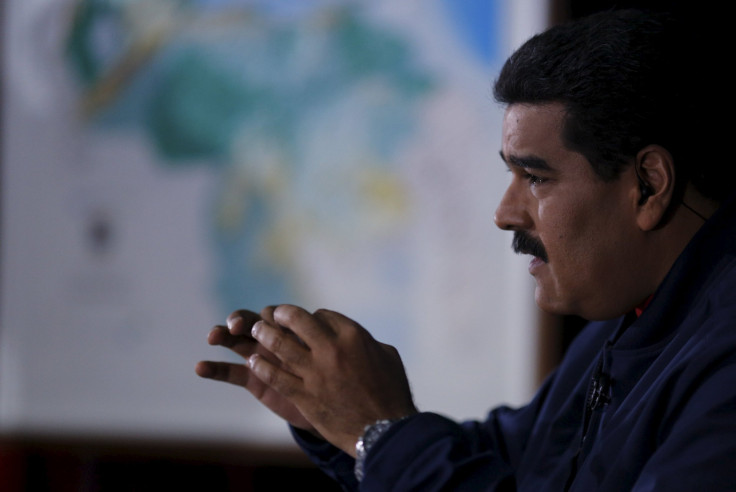Venezuela’s Maduro Waxes Optimistic About Talks With US

The U.S. and Venezuela are in calmer diplomatic waters two months after tensions flared over Washington’s sanctions against seven Venezuelan officials. Caracas is quietly continuing talks with a U.S. envoy to resolve their differences, and according to President Nicolás Maduro, things seem to be progressing smoothly.
“We have managed to sit down and talk with a special envoy of President Obama on respectful terms, and that, I can say, is going well,” Maduro told Venezuelan station television network VTV by phone, referring to U.S. State Department counselor Thomas Shannon. Top Venezuelan officials hosted Shannon at least twice this year to discuss relations between the two nations.
“I hope this won’t be sabotaged, either by terrorists here in Venezuela … or by the extreme right in the U.S.,” Maduro added, according to news agency Efe.
In early April, the Obama administration sent Shannon to speak with Maduro’s government to quell tensions between the U.S. and Venezuela ahead of the high-profile Summit of the Americas. Maduro told VTV that his brief encounter with Obama at the summit solidified a framework for regular talks between the two governments. Shannon made another visit to Caracas earlier this month to continue the meetings.
In early March, Obama issued an executive order that froze the U.S. assets of and issued travel bans against seven Venezuelan officials deemed to have committed human rights abuses in the crackdown on mass protests last year. But Maduro decried the sanctions – particularly language in the executive order describing Venezuela as a threat to U.S. national security – and launched a nationwide campaign to push Obama to repeal them. So far, the Obama administration has not indicated that it is willing to do so.
As that dialogue continues, some of Maduro's most aggressive opponents, including political prisoner Leopoldo López, are calling for mass protests Saturday against the government. López, who helped lead the spring 2014 anti-government protests, has been in prison for more than a year on charges of inciting violence during last year’s demonstrations. He and Daniel Ceballos, the jailed former mayor of San Cristobal and another leader of the 2014 protests, began a hunger strike over the weekend, according to a statement López made in a leaked video.
However, members of the moderate opposition coalition Democratic Unity Roundtable, which backed former presidential candidate Henrique Capriles against Maduro in the 2013 election, issued a statement Tuesday declining to participate in Saturday’s protests. The coalition said we “respect, value and share Leopoldo López’s reasons for calling for mobilization,” according to Venezuela’s El Universal newspaper.
But the group said it wanted to go beyond simply calling people into the streets. “Today the obligation of the Democratic Unity is to accompany, support, articulate and give organization to the people that are already protesting in the street or are about to, to transform this indignation into energy and a force for change.” These “circumstances,” the statement said, prevent the group from participating as part of a coalition in Saturday’s protests.
© Copyright IBTimes 2024. All rights reserved.












